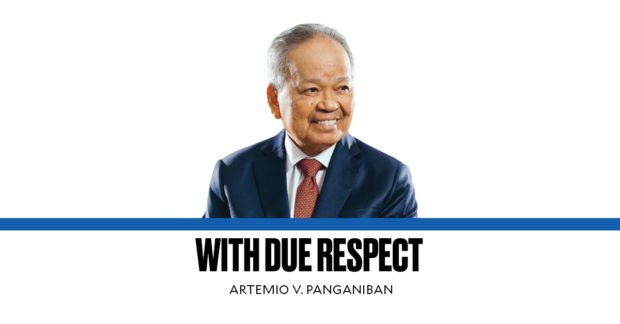Last Monday, I expressed my view that the International Criminal Court (ICC) has lost its jurisdiction over the alleged “crime against humanity of murder, committed in the Philippines between Nov. 1, 2011 and March 16, 2019.” This is due to the failure of former ICC chief prosecutor Fatou Bensouda to obtain authorization from the Pre-Trial Chamber (PTC) of the ICC to conduct an investigation of the “Philippine situation” within one year from March 17, 2019 when the Philippine withdrawal from the ICC took effect. Many individuals reluctantly agreed with my viewpoint, including myself. However, to address concerns and doubts, particularly among my fellow lawyers, I will now provide the legal justifications for my opinion, explain why equitable solutions are not feasible in this case, and suggest ways to satisfy our people’s quest for justice.
Firstly, under Article 127 of the Rome Statute that establishes and governs the ICC, a member (referred to as a “State Party”) has the right to withdraw from the ICC. The withdrawal takes effect one year after the date of receipt of the notification. In the case of the Philippines, the official authorized to receive the withdrawal documents, “the Secretary General of the United Nations,” received the Philippine withdrawal on March 17, 2018. Therefore, the withdrawal became effective on March 17, 2019. However, Article 127 includes an exception that the withdrawal shall not affect matters already under consideration by the Court prior to the withdrawal becoming effective. Thus, the key question is when the Philippine situation was already under consideration by the Court. Was it in 2018 when Bensouda initiated her examination, or was it in 2021, two years after the Philippine withdrawal took effect, when she sought authorization from the PTC for a formal investigation? In my previous article, I argued that the Office of the Chief Prosecutor is not an integral part of the ICC, and therefore, the Philippine situation cannot be considered to have been under ICC’s consideration prior to the effective date of withdrawal.
Secondly, international and arbitral tribunals, such as the ICC, strictly interpret and apply the treaties or statutes that create them based on the verba legis (letter of the law). The Rome Statute does not grant ICC judges clear authority to interpret and apply the law liberally and actively. In contrast, our judiciary, particularly the Supreme Court, is explicitly mandated by our Constitution to strike down “grave abuse of discretion” and is therefore expected to be “activist” rather than “literalist.” Additionally, our Civil Code (Article 9) prohibits judges from refusing to decide cases based on the silence, obscurity, or insufficiency of the law. Instead, the Code (Article 10) directs judges to presume that the lawmaking body intended right and justice to prevail in cases of doubt in the interpretation or application of the laws. The Rome Statute lacks similar provisions that empower its judges to be activists or innovate equitable solutions for the sake of justice. In contrast, our judiciary can provide equitable remedies because our courts operate as both courts of law and equity.
Finally, even though the ICC’s intervention in the Philippine situation is limited due to the loss of jurisdiction caused by the delayed action of the former chief prosecutor, our local authorities must ensure that the victims of the drug war are not left stranded. It is not because the ICC found no evidence of the alleged “crime against humanity of murder” in the Philippine situation, but rather due to jurisdictional issues. Therefore, our investigative and prosecutorial agencies, including the police forces, Department of Justice, Office of the Ombudsman, and the Office of the Solicitor General, have the responsibility to thoroughly and promptly investigate the complaints of the victims. Once the investigations are completed and probable cause is established, appropriate charges should be filed. Our courts should then fulfill their duty to impartially and expeditiously adjudicate these cases. Failing to deliver fair and swift justice would perpetuate the drug war as a contentious issue and cast doubt and suspicion on the legacies of Presidents Ferdinand Marcos Jr. and Rodrigo Duterte. It may even result in accusations of abuse, negligence, or rebellion. Let us pray for divine intervention to rescue us from this tumultuous situation.
Denial of responsibility! VigourTimes is an automatic aggregator of Global media. In each content, the hyperlink to the primary source is specified. All trademarks belong to their rightful owners, and all materials to their authors. For any complaint, please reach us at – [email protected]. We will take necessary action within 24 hours.


